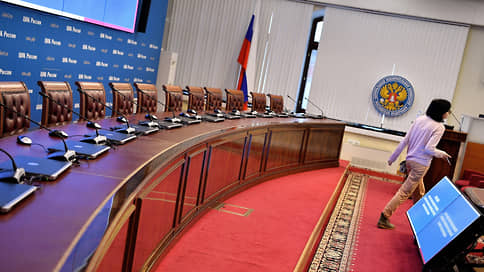Candidates will not report donations from foreign agents who have been banned from transferring funds
[ad_1]

The Central Election Commission has amended its regulations to prohibit foreign agents from donating to election funds of candidates and parties. For account holders, this innovation simplifies financial reporting. Experts note that donations that could have been sent with violations of the law, candidates could previously return or redirect to the state treasury, but during a large campaign it was physically difficult to verify hundreds or even thousands of donations with the register of foreign agents.
The CEC, at its June 1 meeting, adopted a number of changes to its regulations in line with new amendments to the electoral law that prohibit foreign agents from making donations to the election funds of candidates and parties. As its deputy chairman Nikolai Bulaev clarified at a meeting of the commission, these innovations “will simplify the life of candidates,” because they will no longer have to fill out payment orders, since citizens with foreign agent status no longer have the right to transfer funds.
The ban on foreign agents to donate to candidates and parties appeared in the electoral legislation as part of the latest large-scale package of amendments that the President of the Russian Federation signed on May 29.
Recall that the first incidents with the transfer of funds by foreign agents to government officials occurred in 2021 on the eve of the elections to the State Duma. So, at the beginning of the year, Pskov journalist Denis Kamalyagin, recognized as a foreign agent, transferred small sums to the governor of the Pskov region, a local deputy of the State Duma and the head of the Pskov administration, and then reported to the Ministry of Justice about his transfer. According to the journalist, according to the law, the recipients of the transfers should have been recognized as people affiliated with a foreign agent. And those, in turn, had to indicate their status in the election campaign. Such an amendment was made to the electoral legislation just before the elections to the State Duma-2021. After the publication of this fact, the officials sent the money back to the journalist. In May 2021, Leonid Volkov, an ally of oppositionist Alexei Navalny, did the same (he was included in the register of foreign agents, as well as in the list of extremists and terrorists of Rosinformmonitoring). While abroad during the trial to recognize Navalny’s headquarters as an extremist organization and ban them, he transferred money to the card of the co-author of the “extremist” amendments, State Duma deputy Andrei Alshevsky, with the signature in the purpose of payment: “To the elections. With extremist greetings!”
Until now, during the election campaign, foreign agents had to indicate their status in payment documents for donations, and candidates then indicate this in their financial statements. By law, candidates have the right to return any donation received, with the exception of an anonymous donation – funds transferred by anonymous people are supposed to be transferred to the local budget. Now the problem has been solved at the root – through a ban on donations for foreign agents.
Political lawyer Anton Rudakov notes that candidates and electoral associations have always had the right to return donations, but filling the electoral fund within the framework of large election campaigns is extremely difficult to administer. The new rules could significantly limit “the possibilities of the emerging mass public fundraising,” the expert says, but it will eliminate the need for candidates to check “several hundred or thousands of donations, including those against lists of foreign agents, which was physically difficult.” Electoral lawyer Oleg Zakharov notes that, from a formal point of view, receiving a donation from a foreign agent makes the recipient of such financial assistance an accomplice. “Taking advantage of this, some foreign agents specifically transferred several rubles to candidates from the government, even acting governors, in order to create such risks for them,” says Mr. Zakharov. toxic donors.”
It should be noted that the latest amendments to the electoral legislation allow setting the minimum amount of voluntary donations to election participants – no more than 3% of the national minimum wage. Previously, the electoral legislation spoke only of the maximum amount of such donations.
[ad_2]
Source link








